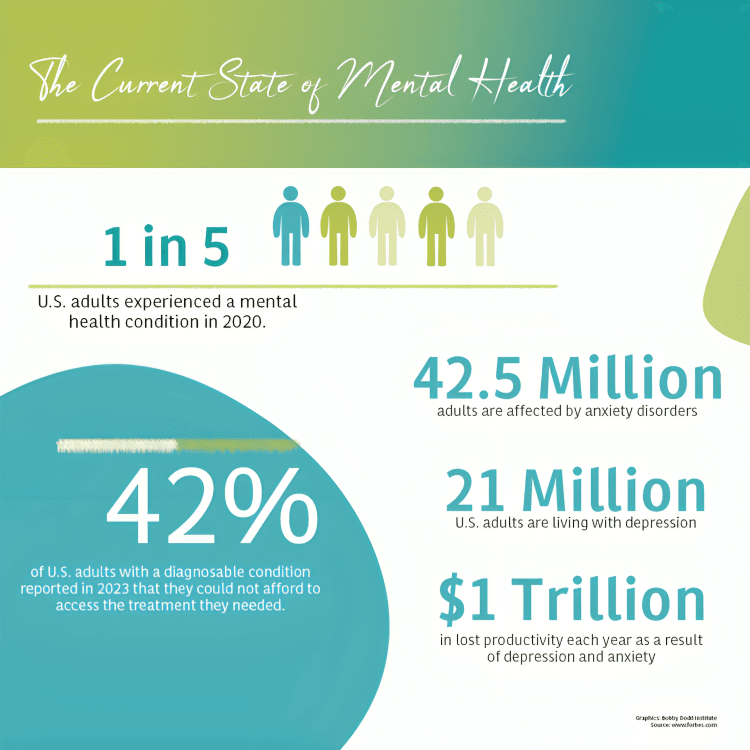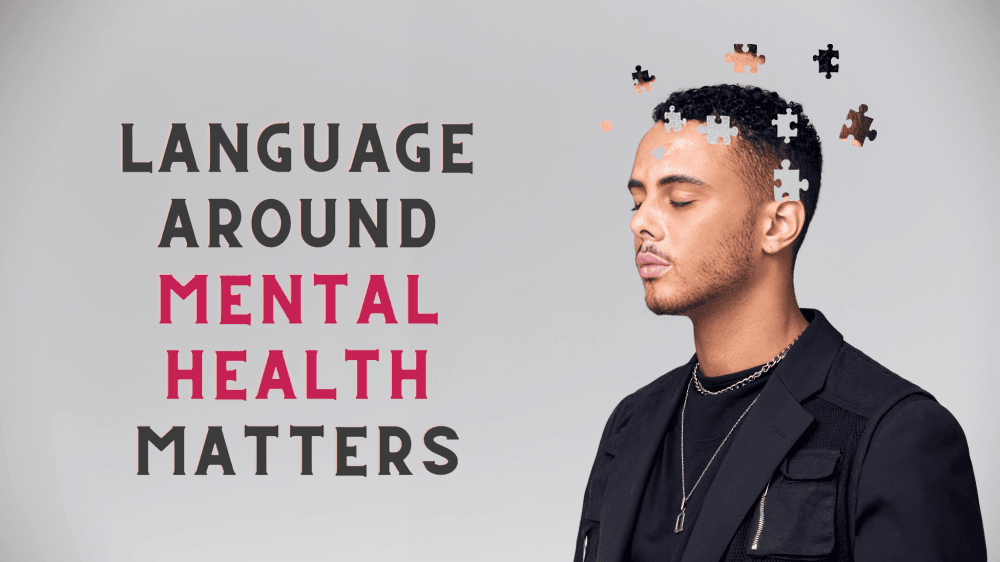
“
Breaking mental health treatment stigma is essential to creating an open, supportive environment where individuals can seek help without fear. By confronting stereotypes and promoting awareness, we can foster a more inclusive approach to mental health treatment.1
1
”
Mental health treatment is as essential as physical care. Therapy, medication, and lifestyle changes can greatly improve quality of life and help individuals manage their mental well-being effectively. 1
Mental health issues aren’t a sign of weakness. They result from complex biological and environmental factors, as confirmed by extensive psychological research, not personal failure. 2
Early intervention in mental health issues leads to better outcomes. Addressing concerns early prevents complications, reduces severity, and minimizes the burden on both individuals and healthcare systems. 3

Nearly 1 in 5 people experience mental illness each year, yet many don't seek help due to stigma. Raising awareness can encourage people to seek treatment without fear of judgment.
Mental health stigma often causes social isolation and worsens symptoms. By breaking this stigma, people are more likely to seek help and experience better mental health outcomes.4
Cognitive-behavioral therapy (CBT) is a proven treatment that can reduce symptoms of anxiety, depression, and PTSD. Therapy offers practical tools for managing emotions and improving mental well-being.5
The stigma surrounding mental health treatment delays seeking help. By removing this barrier, people can receive timely care, reducing suffering and improving overall health outcomes.6
Dr. Viktor Frankl’s work emphasizes finding meaning in suffering. His research shows that mental health treatment can help individuals build resilience, even in the most challenging circumstances.7
Mental health conditions affect individuals of all demographics. Recognizing this universal impact helps reduce stigma and encourages inclusivity in accessing mental health resources. 8
Mental health treatment reduces symptoms and enhances overall well-being. Therapy and medication can help individuals lead more fulfilling lives and manage mental health challenges more effectively. 9

Mental health professionals provide expert, judgment-free support. Seeking their help is as important as seeing a doctor for physical health issues and is key to managing mental health.
Misunderstandings about mental health contribute to stigma. Educating people about the complexities of mental health can change attitudes and encourage individuals to seek the help they need.10
A 2018 study found that stigma is a significant barrier to seeking mental health treatment, with 70% of people reporting it as a reason for not seeking help. Addressing stigma can lead to better recovery. 11
Open discussions about mental health help normalize experiences. When we talk openly, it becomes easier for others to seek help without fear of judgment or feeling isolated. 12
Mental health treatment improves personal and professional lives. Therapy helps people develop coping strategies, resilience, and skills to better manage challenges and thrive in daily life.13
Dr. David Spiegel’s research shows psychotherapy improves emotional regulation and stress management in people with anxiety and trauma. His work emphasizes the power of mental health treatment in recovery. 14

Using negative language like "crazy" perpetuates harmful stereotypes. Changing our vocabulary to more compassionate and accurate terms helps break stigma and encourages understanding.
The World Health Organization stresses the importance of mental health for overall well-being. Mental health care is essential for individual health and global development, benefiting societies as a whole.15
Social media has become a powerful tool in breaking mental health stigma. Influencers and advocates share personal stories, making it easier for others to access support and treatment resources. 16
Mental health treatment is a form of self-care, not weakness. Acknowledging this helps reduce stigma and encourages people to seek the support they deserve without feeling ashamed. 17


